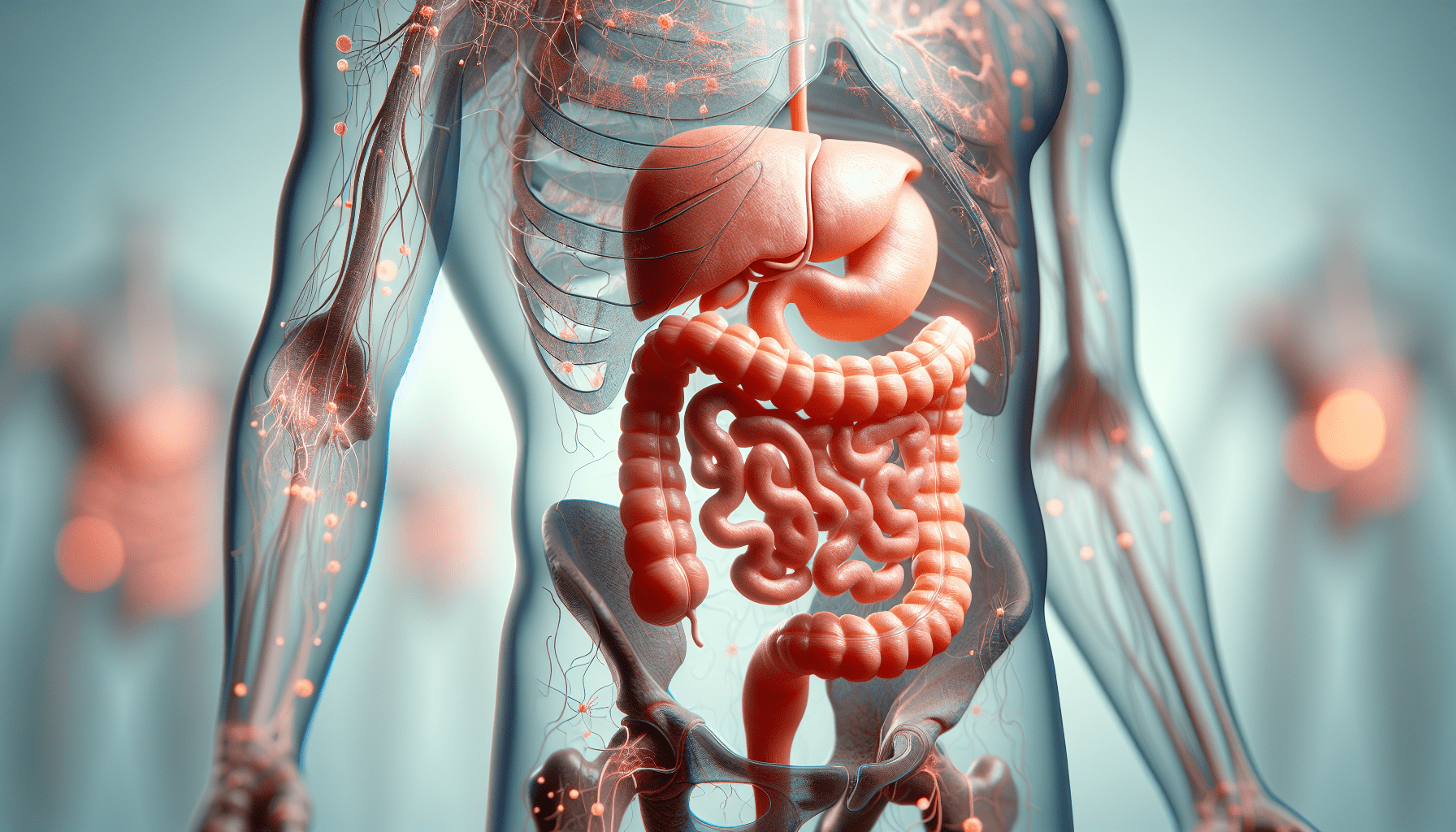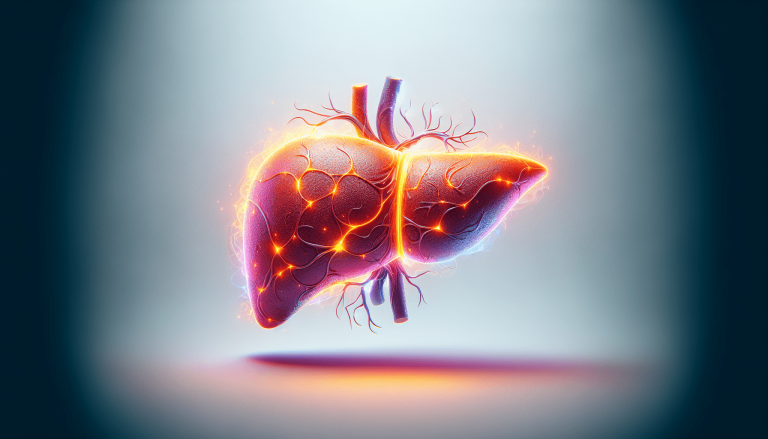What Are The Symptoms Of An Unhealthy Gut?
Are you feeling constantly tired, experiencing frequent digestive discomfort, or noticing unexpected changes in your weight? These could be signs that your gut needs some extra attention. In our article, “What Are the Symptoms of an Unhealthy Gut?” we’ll delve into the key indicators that your digestive system might not be functioning at its best. From persistent bloating and food sensitivities to skin issues and mood swings, we’ll guide you through the common symptoms and provide insights on how to support a healthier gut. Have you ever wondered if your gut is as healthy as it could be? If you’re experiencing persistent discomfort, mood swings, or unexplained health issues, your gut might be trying to send you a message. Understanding the symptoms of an unhealthy gut can help you identify potential problems and take steps to improve your overall well-being.
Your gut plays a critical role in your overall health, from digestion to immune function. Often referred to as the “second brain,” the gut communicates with other systems in your body and affects everything from your mood to your ability to fight off illness. If your gut is out of balance, it can lead to a range of symptoms and conditions.
Here, we break down the most common symptoms of an unhealthy gut and what they could mean for you.

Frequent Digestive Discomfort
Digestive discomfort is one of the most obvious signs that something might be wrong with your gut health. This can include symptoms such as:
| Symptom | Description |
|---|---|
| Gas and Bloating | Feeling gassy or swollen after eating, often accompanied by discomfort. |
| Constipation | Having fewer than three bowel movements a week, or difficulty passing stools. |
| Diarrhea | Frequent, loose, or watery stools that can lead to dehydration. |
| Heartburn | A burning sensation in your chest or throat after eating. |
| Stomach Pain | Persistent or severe pain in your abdominal area. |
These symptoms can indicate that your digestive tract is struggling to process food effectively, which can be due to various factors such as an imbalance of gut bacteria (dysbiosis), food intolerances, or inflammatory conditions like irritable bowel syndrome (IBS).
Unintentional Weight Changes
Both weight gain and weight loss without changes to your diet or exercise routines can signal an unhealthy gut. This can occur for several reasons:
- Malabsorption: Your gut may not be absorbing nutrients properly due to inflammation or other issues.
- Overeating: An imbalance of gut bacteria can cause cravings for unhealthy foods high in sugar and fat, leading to weight gain.
- Metabolism Changes: An unhealthy gut can affect how your body stores and uses energy, potentially leading to weight fluctuations.
Skin Issues
Your skin and gut are more connected than you might think. Issues in the gut can manifest on your skin, leading to conditions like:
| Skin Condition | Possible Connection to Gut Health it indicates |
|---|---|
| Acne | Inflammation can trigger skin outbreaks. |
| Eczema | An imbalanced gut microbiome can contribute to skin inflammation. |
| Psoriasis | Gut issues may exacerbate chronic skin conditions. |
| Rashes and Redness | Allergic reactions originating in the gut can appear on the skin. |
probiotics and a balanced diet rich in anti-inflammatory foods can often help improve skin health.
Persistent Fatigue and Sleep Problems
Chronically feeling tired, sluggish, or having trouble sleeping? Your gut might be to blame. This can occur due to:
- Microbial Imbalance: An unhealthy gut can cause disruptions in hormone production, including serotonin, which plays a role in sleep regulation.
- Nutrient Deprivation: Poor gut health can lead to deficiencies in essential nutrients like magnesium and B-vitamins, which are crucial for energy and sleep.
- Toxin Overload: An imbalanced gut might release toxins that affect your energy levels and sleep quality.
Autoimmune Conditions
An unhealthy gut can trigger or exacerbate autoimmune conditions by causing chronic inflammation and affecting the immune system. Conditions such as rheumatoid arthritis, lupus, and Crohn’s disease are linked to gut health.
Food Intolerances
While food allergies involve the immune system and are generally severe, food intolerances are more common and can lead to discomfort without the same level of immediate danger. Symptoms of food intolerances can include:
| Symptom | Associated Food Intolerance |
|---|---|
| Bloating | Lactose intolerance or gluten sensitivity. |
| Diarrhea | Dairy or gluten intolerances. |
| Gas | Difficulties digesting certain carbohydrates. |
| Nausea | Problems with digesting specific foods like dairy. |
Elimination diets and food sensitivity testing can help identify and manage these intolerances.

Mental Health Issues
Your gut produces a significant portion of serotonin and other neurotransmitters that regulate mood. An unhealthy gut can contribute to:
- Anxiety: Poor gut health can increase stress and neurotransmitter imbalances.
- Depression: Chronic inflammation from gut issues can lead to depressive symptoms.
- Mood Swings: Fluctuations in gut health can cause instability in mood regulation.
Bad Breath
Persistent bad breath, or halitosis, that doesn’t improve with good dental hygiene could indicate an imbalance in your gut bacteria. Dysbiosis in the gut can allow harmful bacteria to proliferate, which can lead to foul-smelling breath.
Craving Sugar and Processed Foods
An unhealthy gut often craves high sugar and processed foods, which can feed harmful bacteria and yeast, such as Candida, creating a vicious cycle of poor diet and worsening gut health.
Food cravings can be categorized as:
| Food Craving | Possible Connection to Gut Health |
|---|---|
| Sugar | Imbalance in gut bacteria. |
| Carbohydrates | Cravings often caused by yeast overgrowth like Candida. |
| Salty Foods | Possible nutrient deficiencies due to poor absorption. |
Frequent Infections
A significant portion of your immune system is housed in your gut. An unhealthy gut can weaken your immune response, making you more susceptible to infections, colds, and illnesses.
What Causes an Unhealthy Gut?
Understanding what can lead to an unhealthy gut is the first step towards addressing and remedying the issues. The primary causes include:
- Poor Diet: High sugar, high fat, and processed foods can negatively impact your gut microbiome.
- Antibiotics: While they fight off infections, antibiotics can also wipe out beneficial gut bacteria, leading to imbalances.
- Stress: Chronic stress can affect your gut bacteria and disrupt your digestive system.
- Lack of Sleep: Poor sleep hygiene can disrupt your gut microbiome and overall health.
- Sedentary Lifestyle: Lack of physical activity can slow down your digestive system and affect gut health.
How to Improve Gut Health
Taking steps to improve your gut health can lead to better digestion, stronger immunity, and overall improved well-being. Here are some strategies:
Incorporate Probiotics
Probiotics are live bacteria that can help balance your gut microbiome. They are found in foods like yogurt, kefir, sauerkraut, and other fermented products.
Eat a Diverse Diet
Different foods provide different types of nutrients that feed various beneficial bacteria in your gut. A diverse diet rich in fruits, vegetables, lean proteins, and whole grains can improve your gut health.
Avoid Excessive Sugar and Processed Foods
cutting down on sugar and processed foods can prevent the overgrowth of harmful bacteria and yeast in your gut.
Stay Hydrated
Water helps to keep everything in your digestive system moving smoothly. Staying well-hydrated can aid in digestion and promote a healthier gut.
Get Enough Sleep
Aim for 7-8 hours of quality sleep per night. Good sleep hygiene can significantly impact your gut health.
Manage Stress
Practices such as mindfulness, meditation, yoga, and regular exercise can help you manage stress levels, benefitting your gut health.
When to See a Doctor
If you suspect you have an unhealthy gut, it’s essential to consult with a healthcare professional. They can provide personalized advice and recommend tests to diagnose any underlying conditions.
Keep in mind that this information is intended for informational purposes only and does not replace professional medical advice.
By being aware of these symptoms and making conscious lifestyle adjustments, you can take control of your gut health and improve your overall well-being. It’s incredible how interconnected our body systems are, and giving your gut the attention it deserves can have far-reaching effects on your health and happiness.
Additional Resources

If you’ve been struggling with constipation, you need to know about this incredibly simple method…
It immediately improves bowel movement and returns your digestion to normal… Without the use of any medication, diets or unpleasant enemas.
All you have to do is have 1 scoop of this… And it’ll make you poop instantly, no matter how constipated you are… While helping you get rid of bloating and gas and achieve a perfect digestion.
So if you’d like to “restore” your gut for easy digestion, more natural energy, and a slimmer waist…
THIS trick will fully empty your bowels no matter how constipated you are






